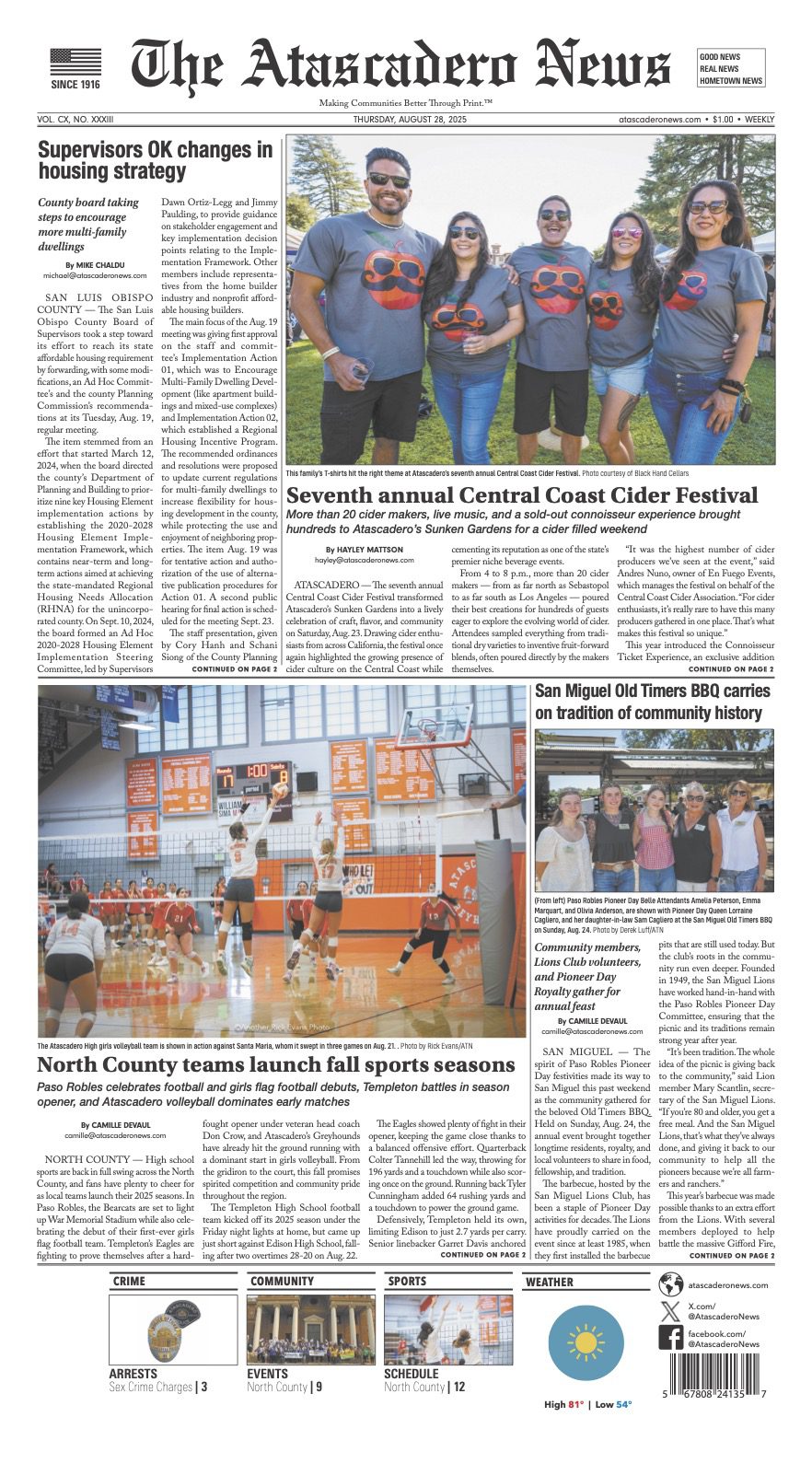While Decoration Day began as a remembrance of those who died in the Civil War, its message was absorbed into Memorial Day as a remembrance of all lives lost in military service to the country. There is nothing to complain about there, and those we mourn and remember in May deserve a day of dedication.
As the great-grandchild of a Swedish-American immigrant who fought with the Union after just five years of citizenship and helped win the Civil War, I feel incomplete without a national holiday recognizing the end of the Civil War and the abolishment of slavery.
I appreciate those who celebrated Juneteenth for 155 years, and I will personally celebrate our sacrifices made for the freedom of all our countrypersons today.
On this June 19, 2020, the spirit around the holiday takes on new significance against a backdrop of national conversation regarding community tensions.
As an American of 41 years, I’ve been celebrating the 4th of July among some of the best people in the world. I’m a devout fan of the Declaration of Independence and based my career on my faith in the Bill of Rights of the U.S. Consititution. I’m a third-generation immigrant, but myself and my children are Americans.
The flag of the United States represents inclusion, resilience, and hope. The ideals of the nation the flag represents are still the best in the world.
That flag flew over the Union in the Civil War, and is the flag we sing about in the Star-Spangled Banner. It is the flag that still waves over the land of the free and the home of the brave.
Our American flag battled against the Confederate army and defeated the institution of slavery in the United States.
On January 1, 1863, Abraham Lincoln issued the Emancipation Proclamation. The Confederacy lost the Civil War, and slavery was ended, but not everyone got the memo. In fact, there are political doctrines that still stand today that have not accepted the end of slavery fundamentally, and we are suffering as a nation as a result.
Those doctrines ruled the former Confederate states at a cultural level, and the end of the war changed very little in those states’ cultures as witnessed through most of the 1900s, including the establishment of Jim Crow laws.
Juneteenth celebrates the final “memo” to the residents of Galveston, Texas in 1865, when Union General Gordon Granger delivered a proclamation announcing to the remaining Confederate allegiance that they had lost the Civil War and slavery as they knew it was over, that “all slaves are free.”
“This involves an absolute equality of rights and rights of property between former masters and slaves, and the connection heretofore existed between them becomes that between employer and hired laborer.”
The announcement in Texas was particularly significant, as it followed more than two and a half years after Lincoln issued the Emancipation Proclamation.
Although recognized by 46 states, Juneteenth is not currently a national holiday, nor is there any other holiday to celebrate the end of the Civil War and abolishment of slavery. This is particularly surprising to me now 41 years American.
The United States lost 620,000 citizens to the Civil War. From July 4, 1776 to the current hour, the Civil War was the most significant event in American history in both tragedy and transformation.
Juneteenth — recognized by California as “National Freedom Day” on the third Saturday in June — is the closest thing we have to a celebration of the independence of all people of our nation, although the Civil War failed to correct many cultural and civil rights issues.
For 155 years, Juneteenth has marked a celebration of the proclamation in Galveston, two and a half years after the official end of slavery. Although the Solid South continued injustices after the Civil War that continued for about 100 years.
Now is a time for a bedrock shift in our collective perception. It is time for a new national holiday that recognizes the sacrifices made by those who fought for the rights of all people, the end of the Civil War, the abolishment of slavery, and our continued journey toward a more perfect union.
With its calendric proximity to July 4, there is an opportunity to create a symbolic bridge between June 19 and July 4 to bond both the birth of America and the announcement of freedom for all its people.
The spirit of the two holidays naturally dovetail to promote unity around freedom and independence.
The freedom of our people today would not be available without our original documents, and our original documents would not hold integrity without the abolishment of slavery.
Celebrating Juneteenth is celebrating the freedom won at the cost of American blood spilled on American soil by American people of all skin tones, and led by Abraham Lincoln — who not-so-coincidentally authored the quote gracing the front of the Atascadero City Hall.
Celebrating July 4 is celebrating the establishment of a nation duty-bound to “form a more perfect Union, establish Justice, insure domestic Tranquility, provide for the common defence, promote the general Welfare, and secure the Blessings of Liberty to ourselves and our Posterity.”
My great-grandfather moved to Minnesota in 1856 from Sweden to participate in the building of America, at the onset of the Civil War. As a teenager, he fought as a member of the 1st Minnesota Volunteer Infantry Regiment for the Union at the Battle of Bull Run, Antietam, and Gettysburg. He was five years a citizen of the United States before joining the fight in a country only 80 years old at the time. That is my heritage.
My family was not part of the Revolutionary War, but I personally love celebrating Independence Day because I understand and feel the spirit of freedom. I recognize the power of the Declaration of Independence, and the power of the Bill of Rights of our U.S. Consititution.
Celebrating freedom and independence is something that rings true for everyone in America, even when there are great strides to be made.
As the great-grandson of a Civil War soldier, I believe that the United States did not become the great nation it is today until after the Civil War, while the original documents were great promises.
Juneteenth stands as the single point of recognition of the ultimate end of slavery. Celebrating it together as a nation completely and utterly unsegregated is as American a thing as I can think of. We won. We all won.
All gave some. Some gave all. We are one nation, indivisible. It is time to act like it before we lose the chance.
The Preamble to the Declaration of Independence
“We hold these truths to be self-evident, that all men are created equal, that they are endowed by their Creator with certain unalienable Rights, that among these are Life, Liberty and the pursuit of Happiness.–That to secure these rights, Governments are instituted among Men, deriving their just powers from the consent of the governed,–That whenever any Form of Government becomes destructive of these ends, it is the Right of the People to alter or to abolish it, and to institute new Government, laying its foundation on such principles and organizing its powers in such form, as to them shall seem most likely to effect their Safety and Happiness. Prudence, indeed, will dictate that Governments long established should not be changed for light and transient causes; and accordingly all experience hath shewn, that mankind are more disposed to suffer, while evils are sufferable, than to right themselves by abolishing the forms to which they are accustomed. But when a long train of abuses and usurpations, pursuing invariably the same Object evinces a design to reduce them under absolute Despotism, it is their right, it is their duty, to throw off such Government, and to provide new Guards for their future security.”
Op-Ed by Nicholas Mattson










